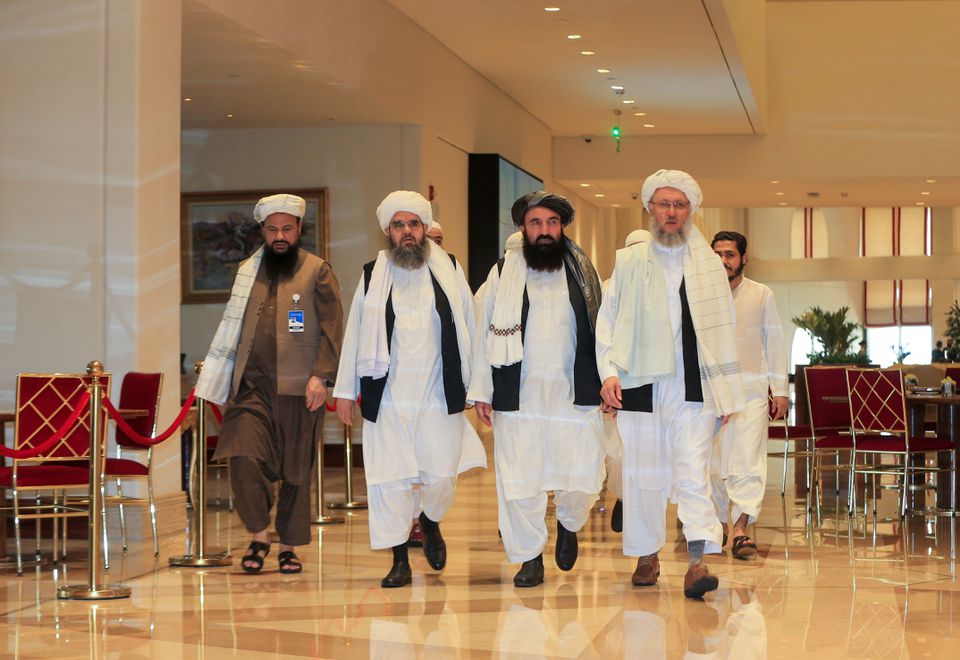India reacted correctly by accepting the invitation from the Russian Federation to attend the 20 October meeting in Moscow with a Taliban delegation. This was despite the reality that this or other such meetings are unlikely to change the trajectory of the emerging tragedy of Afghanistan. There is clearly pressure on India by Moscow, prompted by Beijing to give wheat in large quantities to the UN agency concerned. If wheat has to be given, it must be on condition that it is directly distributed by India to the beneficiaries and does not go through the UN, which will channel it through the Taliban. Unfortunately, any genuine (as distinct from cosmetic) solution to the humanitarian situation in Afghanistan will be impossible so long as Pakistan is given a prominent seat at the table, as was the case in Moscow. For the Taliban, sending a high level delegation from Kabul to attend the Moscow meeting was part of its efforts at securing funding. Hard currency is in short supply in the country, now that the US and its coalition partners have left. That collective contains a preponderance of elements who believe that their moment in history has arrived as a consequence of the uncontested takeover of their country on 15 August. And that this is an affirmation of the validity of the hard-line approach they have consistently followed in matters of conflict and theology. Any assistance given to them or via the Taliban will be diverted to only the backers and foot soldiers of the Taliban. Thus far, while soothing words have been raining down upon the world from Taliban spokespersons, none of this has been translated into practice. It is not known why Hamid Karzai and Abdullah Abdullah opted to remain behind in Afghanistan. Those who motivated them into such a course remain unknown. What is clearer is that their participation (and influence within) the new government in Kabul is zero. They are at the mercy of the Taliban, constantly subject to the risk that some convulsion in the inner councils of that group may result in their being made into a means of appeasing some of the groups. All groups regard those connected with the 2001-21 regime in Kabul as the enemy, and more than a few must be restless at how former President Karzai and former Foreign Minister Abdullah are both pawns in the game of getting donations from the international community, money that will go into Taliban coffers and add to the destructive capabilities of that organisation. Should the pawns prove ineffective in assisting the securing of grants from countries across both sides of the Atlantic or in the Middle East, those who are fretting at their presence may prevail over cooler heads. The Taliban remain a collective of warlords, each of whom safeguards his autonomy and resists efforts at control by others. The only (less than fool-proof) way of protecting the lives of former regime elements still stranded in Afghanistan would be to have an external machinery on the ground that could document the condition they are in, but such a mechanism seems an impossibility for now. Across the land, internet access as well as much of other communication have been cut, with the consequence that the ongoing campaign of intimidation and violence by elements of the Taliban against former and presumed future foes is proceeding without hindrance. The creation of the ISIS(K) bogey and the killings ascribed to them have deflected international attention away from the campaign to crush opposition to the Taliban, whether this be in terms of kinetic capabilities or philosophies. As long as there remain individuals in Afghanistan that the US, India and other powers seek to exfiltrate, the Taliban is aware that such hostages are essential in ensuring that the new government in Kabul be treated with a consideration that facts on the ground do not merit. Hence meetings such as that held in Moscow, and which add to the legitimacy originally conferred on the Taliban by the signing of the 2020 Doha agreement by the US.
The Biden administration continues to insist that its decision to order an abrupt withdrawal by US forces and supporting services in Afghanistan was correct, forgetting that this has emboldened terror modules across the world into believing that they each can replicate the triumph of the Taliban over the Great Satan. While the withdrawal of US kinetic capabilities within Afghanistan was swift, the blowback from it is likely to occur only over time, and not in such a spectacular fashion. This may increase the chances for President Biden to escape much of the blame that would otherwise accrue to him, once the effects of the August 2021 withdrawal begin manifesting themselves. As mentioned before, Bill Clinton has almost entirely gotten away from blame for the consequences of his decision to install the Taliban in power in Afghanistan in 1996, again because the blowback (such as 9/11 had taken years to manifest itself.
As is the case with Russia, there are numerous instances where the strategic interests of Beijing diverge from those of Tehran, and while increasing the geopolitical distance between Iran and India will suit the purposes of the Sino-Pakistan alliance, it does not promote the interests of Tehran. Likewise, it makes little sense for Moscow to be perceived as hostile to the essential interests of India. The present path that the Russian Federation finds itself in, may within a few years result in a subservience to PRC interests that would be almost impossible to reverse, and which would be against the overall interests of the Russian Federation itself.
MDN
India, Russia, Iran in Afghanistan
- Advertisement -

